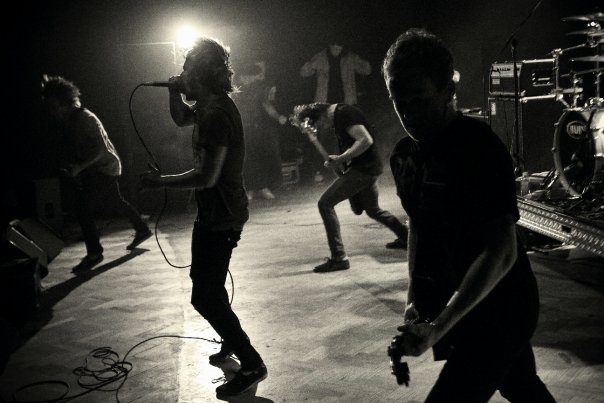Architect’s Holy Hell is an act of catharsis for the band itself
Trying to review this Architects album immediately throws up several problems as to how to rate it. It’s their seventh studio album, but in a way it feels like their first – a band beset by the loss to cancer of guitarist and songwriter Tom Searle, trying to relearn how to make music and how to continue without him. It’s an incredibly tough ask – Searle’s riffs were iconic, and his songwriting uniquely political and personal.
Their last and most successful album was Searle’s coming to terms with his own mortality after being terminally diagnosed. And now he’s gone, the band chose to channel their grief into making another album, which is commendable enough – many other bands in such circumstances would have called it quits. So this album eschews a lot of the political tone for a more introspective one. In a way, I think the best way to see the album is almost as a second half to All Our Gods Have Abandoned Us, in retrospect, this can be seen as a double album – wherein the first half Searle’s confronts his mortality, and in the second the band confront Searle’s mortality.
Much of the songwriting has now fallen to drummer and brother of Tom, Dan Searle along with singer Sam Carter. While we don’t get to see them engage too much with the political themes that the late Searle did, they show that on an emotional level they can write moving and emotional songs of a calibre that does him justice. As would be expected, there is a lot of reference to older work: the opening track ‘Death Is Not Defeat,’ is meant as a direct response to the closing track of All Our Gods – ‘Memento Mori’. There are further references to ‘Gone With The Wind’ throughout, with a poignant reflection on Searle’s assertion that hope is a prison.
This album eschews political tone for a more introspective one
The theme of religion is discussed in much softer terms here, and the band acknowledge this with callbacks to the virulently anti-religion song ‘Broken Cross’ from the album Lost Forever//Lost Together. As you can see, a lot of the problems with rating this album come from its intertextuality. An album that is beautiful, dark and emotive, much of what it is trying to achieve will nevertheless be missed if it is your starting point with Architects.
Lead single ‘Hereafter’ contains my favourite riff of 2018 and Carter’s vocal performance, as on most of the record, is better than ever. ‘Royal Beggars’ has a more melodic, Northlane-inspired vibe and the incredibly frantic ‘Seventh Circle’ is a burst of pure rage and aggression, taking their style in a completely new direction to their usual breakdowns and song structures.
Ultimately it is moments like ‘Seventh Circle’ that lead me to the one major flaw in this album, which is that without the aforementioned songs, this song structure and sound is almost unchanged from the previous record. While this is no bad thing, there’s a reason they are the biggest metal band in the UK. All Our Gods was very much an iteration rather than a reinvention of the sounds from Lost Forever//Lost Together and, to a lesser extent, Daybreaker.
An album that is beautiful, dark and emotive, much of what it is trying to achieve will be missed if this is your starting point
Moments of real experimentation show what the band are capable of at their very best, and there are simply not enough of them here for it to be a truly groundbreaking record. I normally would accuse them of playing safe, but I think its more to do with that they didn’t want to tarnish Searle’s legacy and were proving they could still make music as Architects before moving on to redefine what the Architects are in later projects. If they still sound the same on the next record, then I will be slightly harsher; in honesty, though, the fact we have this album at all is exceptional and it would be unfair to criticise them for sticking with what they know best for the most part.
This leaves me the conundrum of how to score it: with no context, I’d give it an 8, but considering the circumstances, I’d like to give it a high 9 or a 10. Either way, this album is great from front to back, with a few songs showing the pioneering genius that made them the greats that they are. It lives up to Tom Searle’s legacy and leaves fans excited for where the band will go next. And that is the real beauty of the album – it was made as a catharsis for the grieving band, and even after multiple listens I’m not sure it was really originally intended for us to hear, rather than simply them dealing with their emotions the only way they knew how.
The fact that one of the most complete and interesting albums of the year is a form of catharsis from a reeling Architects shows just how good they are, and I would urge anyone interested in the album who is completely new, to have a listen to Lost Forever//Lost Together and All Our Gods, then come back to this album and appreciate it for what it is. For the fans, enjoy it. It’s not Architects at the peak of their powers, but it remains inspiringly good.

Comments
Comments are closed here.